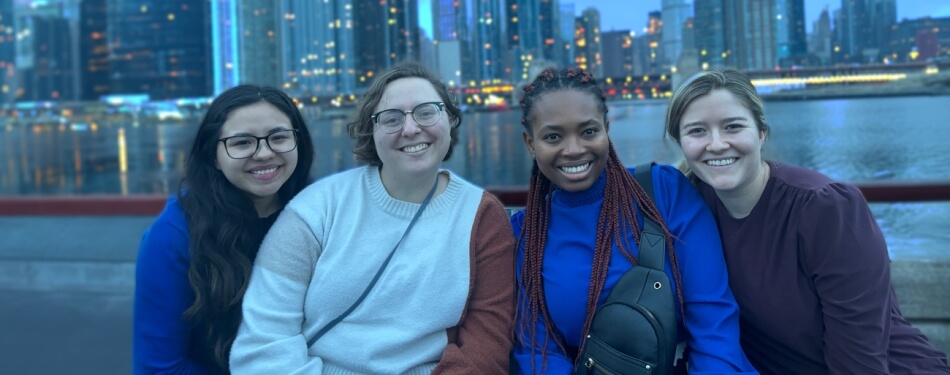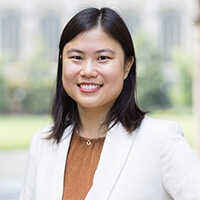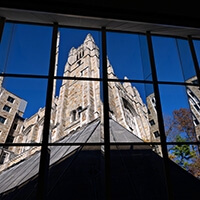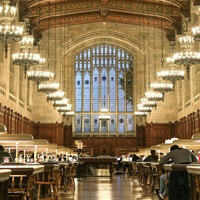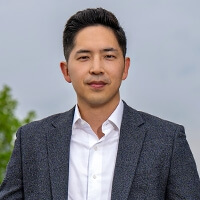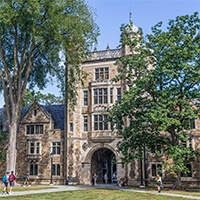Michigan Law’s weeklong break in late February gave students a well-earned respite from the rigors of academic life. For participants in Legal Alternative Winter (LAW) Breaks, it also provided a glimpse into the ways their legal training can make a difference—as practitioners and even as students.
Since 2011, Michigan Law has offered students the opportunity to exchange winter break plans for a week of assisting nonprofit organizations through pro bono work. LAWBreaks is a student-run group—guided by the Law School’s Office of Experiential Education and Pro Bono Programs—that plans service-learning trips during what is typically a time when students go home or hit the beach or ski slopes.
The last LAWBreaks trips took place in 2020, just before the COVID-19 pandemic struck. Since then, the program has remained dormant, waiting to be reinvigorated. This year, Alissa Cammarata, Pro Bono Program administrator, knew the time was right to bring it back.
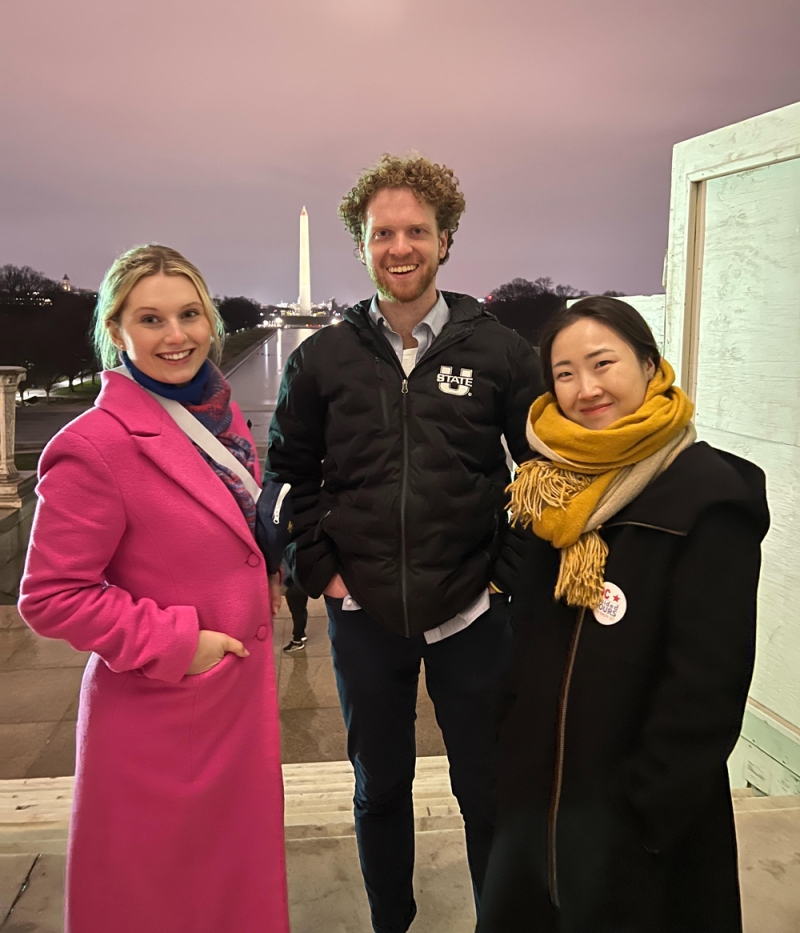
“When I first started working with the Pro Bono Program, I heard about LAWBreaks,” said Cammarata. “After digging deeper into the impact of LAWBreaks on students and the organizations we were partnering with, I couldn’t let it die out because of the pandemic. Bringing it back became a passion project for me.”
A number of students answered the call.
“It sounded like an excellent opportunity,” said Victoria Pedri, a 1L and the new treasurer of LAWBreaks. “When I saw that the number of students who showed up for the kickoff meeting exceeded the number who had signed up, I knew others thought it sounded like an excellent opportunity, too.”
Screening clients at Network for Victim Recovery DC
Pedri was a site leader for one of this year’s three trips. She led a group of students to Washington, DC, to work with the Network for Victim Recovery DC (NVRDC).
“I’m a junior board member with NVRDC, a nonprofit organization that helps survivors of crime,” she said. “I was happy to act as a bridge to connect them with LAWBreaks.”
During their five-day trip, each student was tasked with client screening. When they weren’t referring callers to health and legal services, they worked on projects for the organization, including a brochure on NVRDC’s hospital-based Violence Intervention Program and a Title IX guide for all schools in the District of Columbia.
Outside of their assigned volunteer work, NVRDC gave the students a court tour, during which they observed a civil protection order hearing and part of a criminal case. They also had the opportunity to ask full-time staff members questions during an office-organized happy hour.
“I believe that LAWBreaks enriches the classroom experience,” said Pedri. “I was able to do something different from what law school typically demands, which was energizing.”
Helping the wrongfully convicted in Chicago
This year’s two additional placement sites were stationed in Chicago. One group was led by Camila Calvo, an LLM from Argentina, and the other by Alana Porter, a 1L. Sarah Portwood, a 2L, was a site leader who assisted both Chicago groups.
Calvo’s group worked with the Exoneration Project, a nonprofit that provides free legal services to wrongfully convicted people. During the week, the students conducted client screenings, witnessed a trial hearing in court, and attended a press conference where the organization assisted recently released clients with reentry.
“The press conference grounded my whole experience,” said Elle Sawyer, 1L. “It was a full-circle moment to go from reading clients’ stories at the beginning of the week to hearing firsthand from those successfully helped by the Exoneration Project. That was the most influential part of the week for me.”
Calvo added, “The families of those who were recently released were at the press conference and talked about their loved ones and the exoneration process. Seeing the organization’s impact beyond the paperwork was great.”
From paperwork to court at Ascend Justice
Porter’s group worked with Ascend Justice’s Domestic Violence Courthouse in Chicago. Operating similar to a drop-in clinic, the students met survivors in the morning and worked with them throughout the day to help complete necessary paperwork. In the afternoon, they assisted the survivors in court while a judge adjudicated their filing.
“This program allows students to do meaningful work, especially during their 1L year when they are taking an onslaught of doctrinal classes,” said Porter.
“For many of the students who went on this trip, this was the first time they had the opportunity to participate in pro bono work.”
1L Amanda Swan, who joined Porter’s group, attested to that, saying the trip was invaluable, especially for students like her who matriculated to law school directly from undergrad and hadn’t experienced legal work in between.
This year’s LAWBreaks trip allowed her to expand her resume early on.
“During orientation week, Dean Z reminded us that law is a service profession,” said Swan. “It was great to move beyond the academic exercises we have in the classroom and into real-world practice.”
With the successful return of LAWBreaks, Cammarata said she’s excited to build on the momentum.
“Our board members and site leaders did an amazing job helping with planning and logistics. It was a lot of work, but I’m so pleased with how the trips turned out, especially for our first year back. I look forward to watching the program grow in the coming years.”
Banner image: Pictured above, from left to right, are Amanda Swan (1L), Sarah Portwood (2L), Brittany Warren (3L), and Alana Porter (1L), who participated in two LAWBreaks pro bono projects in Chicago in February.

